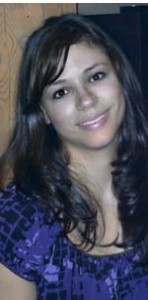Angela Neal ’01 helps abused children and researches healing solutions
By Dan Edelen
 When a timid boy, scarred by abuse, whispers his devastating story, Angela Neal ’01 provides the listening ear. In her dual roles as a child welfare researcher and an intern for Hennepin County (Minn.) Child Services, she offers hope to broken children.
When a timid boy, scarred by abuse, whispers his devastating story, Angela Neal ’01 provides the listening ear. In her dual roles as a child welfare researcher and an intern for Hennepin County (Minn.) Child Services, she offers hope to broken children.
As she pursues her Master’s of Social Work at the University of Minnesota, Neal juggles a packed schedule, helping others during the week through her research and internship, then taking classes on the weekends. Her research at UM focuses on correlating successful intervention techniques of the past to form an improved methodology for helping abused children in the future.
“It’s the best feeling in the world to see a child happy after going through so much pain,” she says.
Neal recalls her work at Hearthstone of Minnesota, a home for teen boys with emotional and behavioral issues, those troubles often leading to an all-too-early encounter with the law. Her first experiences only made her nervous.
“You read these boys’ files and see what people say about them, and what you read is scary,” she says.
But encountering the real children behind the case files permanently changed Neal’s perceptions: “I realized there is so much more to these kids than what is put on paper. They shouldn’t be judged by their mistakes.”
“So many of these boys who become perpetrators were themselves victims when they were young,” she adds. “There’s a huge connection between maltreatment as a child and ending up in the correctional system.”
One of her charges, a boy who immigrated to the U.S., ran afoul of the law and was subsequently abandoned by his father. It later came out that the boy had been a victim of abuse back in his native country. Neal reached out to him.
“I don’t give up on a child,” she notes, citing listening as the key to healing. “Children get talked at rather than listened to. They need time. Once you prove to a child that you are trustworthy, that child will open up to you.”
This boy did. Today, he has found healing and is attending college, the course of his life changed.
Neal became interested in psychology as a high school senior when working with a five-year-old to develop listening, verbal, and social skills. The boy read at a seventh-grade level or higher, but had minimal social skills, could not handle changes in routine, and would lose control of his body and start crying when over-stimulated.
“He enjoyed reading car magazines and would remember every make and model he came across,” she recalls. “[But] he did not initiate conversation or make eye contact when someone engaged him in conversation. Instead, he would exhibit echolalia — repeating what others say and entire TV commercials. He did not interact with any of the other children in the class. He spoke in monotone and when asked a question would give a one-word answer.”
Neal was the one who identified that the boy was not exhibiting age-appropriate behavior. As a result, he was assessed and diagnosed with his condition, hyperlexia. By the end of the year, the boy was making eye contact when prompted and seemed to have developed some attachment to Neal, she says.
At Lafayette, the psychology major’s late-night conversations with fellow students of color occasionally brought out of others the same stories she would later hear in her counseling work. Those private talks opened her eyes and presented an opportunity to counsel her friends. In addition, as an EXCEL Scholar, Neal worked with Ann McGillicuddy-DeLisi, Metzgar Professor of Psychology. Along with Melissa Daly ’01, they co-published a paper on the origins of racism in young children based on their studies of how kids distributed assistance to peers of different races.
Those experiences led Neal to expand her career direction. “While psychology is more interested in the internal, social work understands both the internal and the effects of the outside world, such as racism, sexism, and other social evils,” she notes.
Though salsa dancing provides a respite, Neal spends most of her time researching ways to combat the deleterious effects of a broken world on the young.
“I just want to stop the painful stories and help these kids,” she says, “because I feel that what a child goes through has an effect on what they become when they grow up.”
And somewhere in the midst of a chill Minnesota winter, children who may have only known a cold, uncaring world will grow up to a better future thanks to a caring Lafayette alumna who makes their lives a little warmer.
 When a timid boy, scarred by abuse, whispers his devastating story, Angela Neal ’01 provides the listening ear. In her dual roles as a child welfare researcher and an intern for Hennepin County (Minn.) Child Services, she offers hope to broken children.
When a timid boy, scarred by abuse, whispers his devastating story, Angela Neal ’01 provides the listening ear. In her dual roles as a child welfare researcher and an intern for Hennepin County (Minn.) Child Services, she offers hope to broken children.